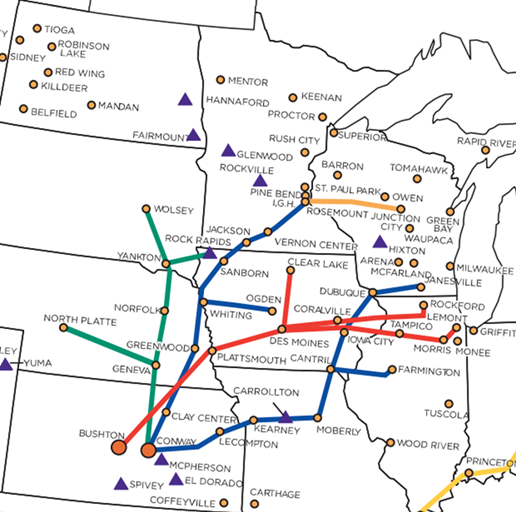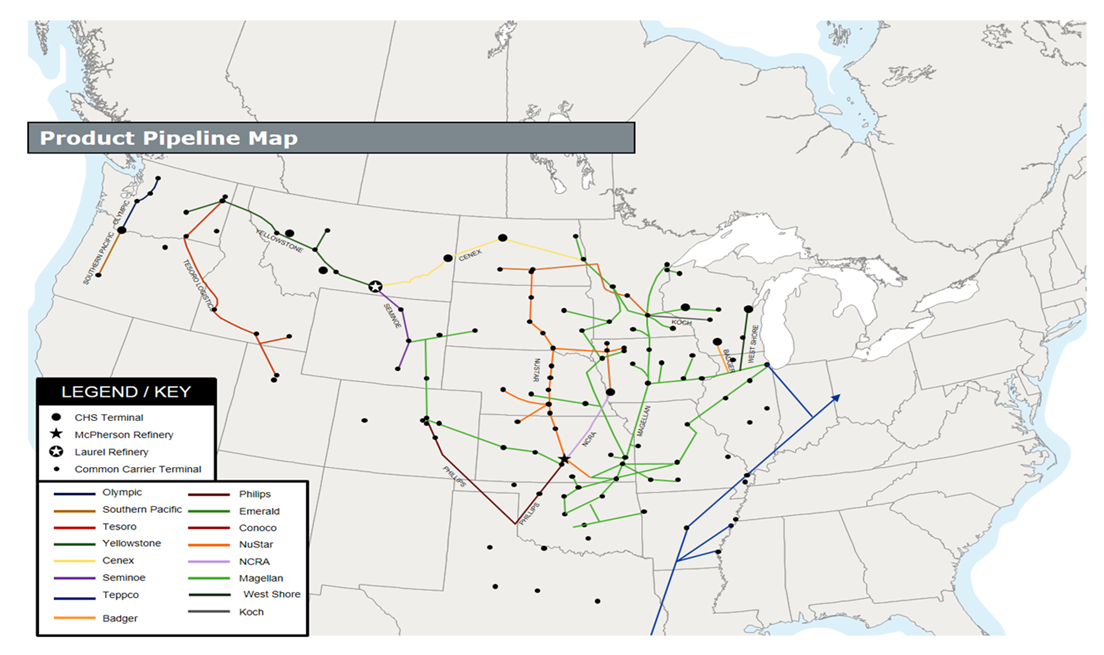Energy Extras
Fuel Storage Tank Size / Maintenance
By Gerry Crawford, Energy Sales
As we work through another challenging growing season, we are seeing the crops get off to a great start across our trade area. With the farmers haying, and the contractors working to get their road work done and buildings built, the need for fuel will be at a high level.
CFC is blessed to have motivated refined fuel and propane delivery drivers. With the busy fall and spring deliveries we would like to visit with our customers about tank storage size. Depending on the operation, fuel storage ideally should be 3 to 4 fills per year. Historically it has been a beneficial price to fill your tanks midwinter late December through February, and again early to midsummer June or July.
We have some customers that should consider updating to newer larger tanks. Some of these tanks are overhead gravity flow and are under 500-gallon capacity. As we move forward, for the safety of our drivers, we want to encourage converting these overhead tanks to ground level tanks. We have a complete inventory of tanks, pumps, and accessories. We have tank sizes 560, 1000, and 2000 in inventory. We’re able to order larger sizes if a customer is interested.
Since we are talking about fuel storage tanks, we would like to remind you that it is important to perform tank maintenance every 6 months. When we store fuel in a tank through the spring and fall season, the tank will sweat on the inside from temperature change. This moisture will drain to the bottom of your storage tank. Proper fuel storage tank practices such as draining or pumping the water out are essential in maintaining the viability of cleaner diesel. If you have questions CFC can help you determine if there is water at the bottom of your fuel tanks. We appreciate the opportunity to earn your business. Have a safe summer and fall harvest!
6/20/2025
Budget Heating Program
By Scott Chase, Energy Department Manager
As we flip the calendar to June, it’s hard to believe that we’re already halfway through 2025. With summer just around the corner, now is the perfect time to start preparing for the upcoming propane season.
Central Farmers is once again offering our Budget Heating Program, designed to help customers manage their propane expenses with ease and predictability. In the June mailing, customers will receive a pamphlet outlining the details of this year’s budget plan. We highly encourage you to take advantage of this program—it offers stable monthly payments and protection against rising market prices throughout the heating season.
By enrolling in the CFC budget plan, your propane price is locked in, giving you peace of mind regardless of fluctuations in the market. Our goal is to serve the best interests of our patrons, and we welcome any questions. Feel free to stop by or call—our team is happy to walk you through the program.
As always, safety remains a top priority. We continue to monitor regulators and perform leak checks as part of our ongoing service. For new customers, please remember that you must be present at the time of your first propane delivery. In accordance with state codes and insurance regulations, a system inspection and leak check will be performed. Our drivers will also provide safety information and walk you through the operation of your propane system.
We’d like to extend a sincere thank-you to our current customers who participate in the budget program. We encourage others to enroll by June 30, 2025, to secure your spot and take full advantage of the program benefits.
Thank you for trusting Central Farmers—we look forward to serving you in the upcoming season!
5/16/2025
How Does South Dakota Get Supplied With Propane and Fuel?
By Gerry Crawford, Energy Sales
Scott and I wanted to provide you with some information on how we receive the propane and fuel that we order. We work with CHS to coordinate our supply throughout the year.

Propane is transported by pipeline to the South Dakota market directly by the Sunoco pipeline system, and indirectly by the Enterprise MAPL West leg system.
- Sunoco: Propane is moved through a batch format, along with gasoline and diesel products.
- South Dakota Terminals: Yankton SD, Wolsey SD
- Propane is batch supplied to these terminals directly in South Dakota
- Out-of-state terminals: Rock Rapids IA, Norfolk NE
- Propane is batch supplied to these terminals, then this supply can find its way trucked into South Dakota at times
- Enterprise: Propane is moved through this pipeline in a continuously single product format.
- Out-of-state terminals: Sanborn IA, Whiting IA
- This supply can find its way trucked into South Dakota at times
It is also important to know that the US exports over 60% of its propane.

When we look at fuel and gas for the state of South Dakota we have the following sources.
Rapid City SD is supplied via the Newcastle Wyoming refinery. That refinery runs off Canadian Crude. That refinery is the only source of supply for the Rapid City terminal.
The Sunoco line (orange), formerly known as Nustar, covers most of the east side of SD with terminals in Sioux Falls, Wolsey, Yankton, Mitchell, and Aberdeen. This line is fed from CHS’s McPherson refinery in McPherson KS. This refinery runs primarily on American crude but does also bring in some Canadian Crude. This pipeline is a fully fungible pipeline.
The Oneok line (green), formerly known as Magellan, covers the Sioux Falls Oneok and Watertown terminals. The Watertown terminal is supplied via the Magellan pipe that is connected to North Dakota. This pipe is being fed by refineries in North Dakota and Montana. These refineries use 100% Canadian Crude oil. The Sioux Falls Oneok terminal gets fed from the south, with some coming from the CHS McPherson refinery and other southern refineries. Again, these use mainly American Crude oil, but some Canadian as well.
In closing, we want to thank you for your business and wish you a safe planting season.
4/25/2025
CFC's Safety & Delivery Policies
As a valued propane customer, your safety is our main concern.
We would like to make you aware of our delivery policies.
Our policies follow the National Fire Protection Association mandates, state codes, insurance requirements
and the CFC credit policies.
We appreciate your business and look forward to serving you this coming season.
Click here for more information.
 |
Energy Staff
 |
 |
 |
 JT Kass
|


